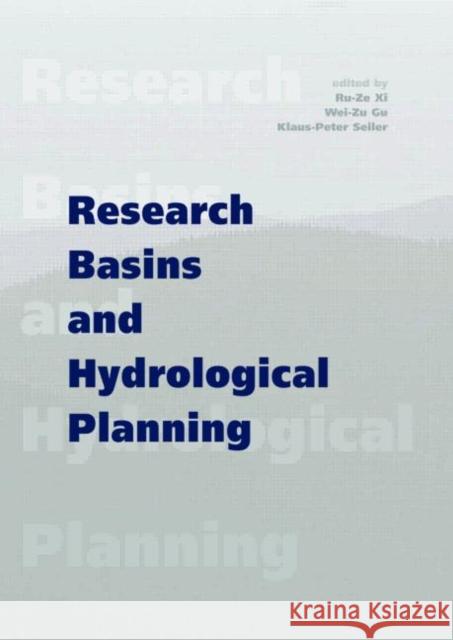Research Basins and Hydrological Planning : Proceedings of the International Conference, Hefei/Anhui, China, 22-31 March 2004 » książka
Research Basins and Hydrological Planning : Proceedings of the International Conference, Hefei/Anhui, China, 22-31 March 2004
ISBN-13: 9789058096111 / Angielski / Twarda / 2004 / 420 str.
Research Basins and Hydrological Planning : Proceedings of the International Conference, Hefei/Anhui, China, 22-31 March 2004
ISBN-13: 9789058096111 / Angielski / Twarda / 2004 / 420 str.
(netto: 1151,88 VAT: 5%)
Najniższa cena z 30 dni: 1158,60
ok. 22 dni roboczych
Dostawa w 2026 r.
Darmowa dostawa!
This volume advocates that hydrology should embrace more integrative and interdisciplinary approaches and achieve more flexibility in assessments and decisions in the face of climatic change and pressures on the ecosystem, including water resources.
In the 20th century, water management focused on the local scale of interest. In the 21st century we will be facing changes in the quantity of our water cycle. The forces behind these new challenges are industrialisation, population growth and an insufficiently swift response to climatic change. The magnitude and distribution of global changes are not exactly predictable, because we live in an ever-changing environment and are faced with extreme and interacting processes, which all are not yet sufficiently understood. Therefore, to shoulder this task, hydrology should embrace more integrative and interdisciplinary approaches and achieve more flexibility in assessments and decisions. To better confront this challenge, catchment-related solutions are more important than local solutions, to satisfy the water demand of agriculture, ecosystems, industry and the private sector. It is wise to keep in mind that the environment has a "sustainable memory" and our knowledge about attenuation capacities and resilience of the environment is still low.











